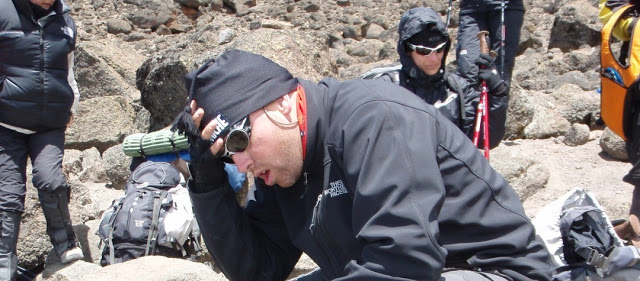What is acute mountain sickness?
Hikers, skiers, and adventurers who travel to high altitudes can sometimes develop acute mountain sickness. Other names for this condition are altitude sickness or high altitude pulmonary edema. It typically occurs at about 8,000 feet, or 2,400 meters, above sea level. Dizziness, nausea, headaches, and shortness of breath are a few symptoms of this condition. Most instances of altitude sickness are mild and heal quickly. In rare cases, altitude sickness can become severe and cause complications with the lungs or brain.

What causes acute mountain sickness?
Higher altitudes have lower levels of oxygen and decreased air pressure. When you travel in a plane, drive or hike up a mountain, or go skiing, your body may not have enough time to adjust. This can result in acute mountain sickness. Your level of exertion also plays a role. Pushing yourself to quickly hike up a mountain, for example, may cause acute mountain sickness.

What are the symptoms of acute mountain sickness?
The symptoms of acute mountain sickness generally appear within hours of moving to higher altitudes. They vary depending on the severity of your condition.
Mild acute mountain sickness
If you have a mild case, you may experience:
- dizziness
- headache
- muscle aches
- insomnia
- nausea and vomiting
- irritability
- loss of appetite
- swelling of the hands, feet, and face
- rapid heartbeat
- shortness of breath with physical exertion
Severe acute mountain sickness
Severe cases of acute mountain sickness can cause more intense symptoms and affect your heart, lungs, muscles, and nervous system. For example, you may experience confusion as a result of brain swelling. You may also suffer from shortness of breath due to fluid in the lungs.
Symptoms of severe altitude sickness may include:
- coughing
- chest congestion
- pale complexion and skin discoloration
- inability to walk or lack of balance
- social withdrawal
Who is at risk for acute mountain sickness?
Your risk of experiencing acute mountain sickness is greater if you live by or near the sea and are unaccustomed to higher altitudes. Other risk factors include:
- quick movement to high altitudes
- physical exertion while traveling to a higher altitude
- traveling to extreme heights
- a low red blood cell count due to anemia
- heart or lung disease
- taking medications like sleeping pills, narcotic pain relievers, or tranquilizers that can lower your breathing rate
- past bouts of acute mountain sickness
If you’re planning on traveling to a high elevation and have any of the above conditions or take any of the above medications, talk to your doctor about how best to avoid developing acute mountain sickness.
How can I prevent acute mountain sickness?
You can take some important preventive steps to reduce your chances of acute mountain sickness. Get a physical to make sure you have no serious health issues. Review the symptoms of mountain sickness so you can recognize and treat them quickly if they occur. If traveling to extreme altitudes (higher than 10,000 feet, for example), ask your doctor about acetazolamide, a medication that can ease your body’s adjustment to high altitudes. Taking it the day before you climb and on the first day or two of your trip can lessen your symptoms.

Sources: realmafricasafaris.com, healthline.com, coreem.net


